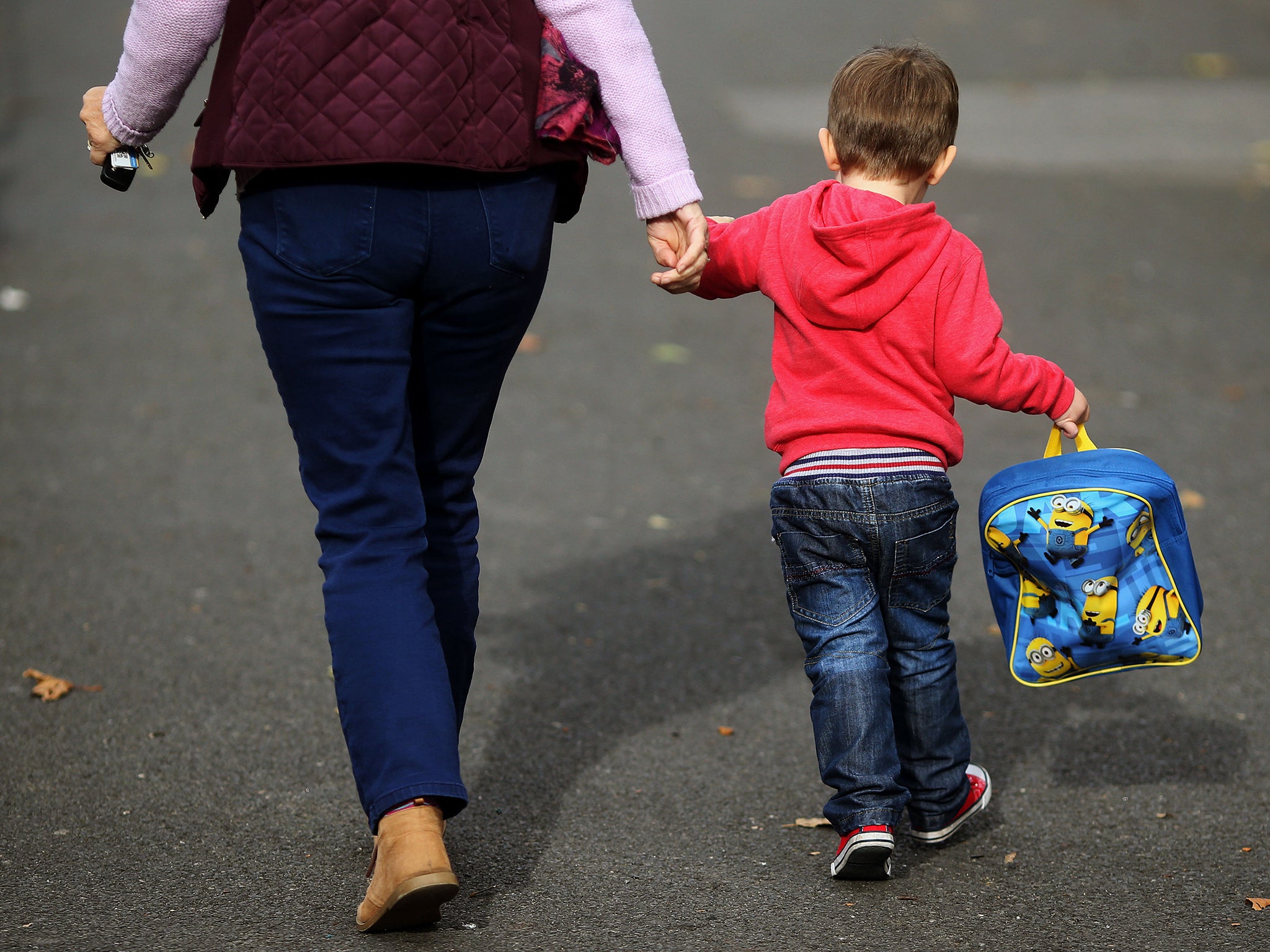Proposed tests for four-year-olds could lead to nursery children being coached for exams, experts warn
Some youngsters are already sent to private tutors on Saturdays to prepare for primary school tests - and the new assessment could make this coaching culture worse, academic suggests

The government’s plans to roll out a controversial assessment for four-year-olds could lead to nursery children being coached to ensure they are test-ready, education academics have warned.
Proposals for young children to be tested in the first few weeks of primary school have been condemned as “flawed, unjustified and wholly unfit for purpose” by a panel of assessment experts.
The report, from the British Educational Research Association (BERA), argues that using the baseline assessment – which will cost up to £10m - is “ethically and methodologically questionable".
The government has said it will use the results of the test for four-and-five-years-olds to hold schools to account for the progress that children make between reception and Year 6.
But the panel of experts argue that testing young children at such an early stage would be “detrimental” to children, parents and teachers and the wider education system in England.
It could lead to a reduction in time spent on more rounded development work in nurseries, and parents may feel “under pressure to secure coaching” to get children the best results, it warns.

Gemma Moss, the chair of the panel and a former BERA president, told The Independent: “I think parents get confused because they think attainment data in the public domain is the equivalent of TripAdvisor. It is a kind of assurance that ‘this is a good school and my kids here will do alright’.
“There is a kind of nervousness about performance in tests which then have backwashes.”
Professor Moss has heard of a privately run Saturday school in London that carries out phonics tuition to four-year-old children as they believe it is important preparation for school.
The report also warns that children born in the summer, with English as an additional language and with special educational needs could be “unnecessarily labelled as low-ability” and these premature judgements risk becoming “self-fulfilling”.
The proposed test, which will last 20 minutes, is set to assess communication, language, literacy and mathematics skills. It will be piloted next year before being rolled out in 2020.
Nancy Stewart, from the More Than a Score coalition, which represents a number of parents’ groups, said: “A negative consequence of the baseline could be giving parents the mistaken message that drilling letters and numbers to coach their child for the test is what they should be doing.
“It is unethical to subject all young children to a test with the potential to be detrimental to them in a number of ways, when it is not intended to benefit them in any way. It is even more dubious since the test will be unfit for its intended purpose of judging schools seven years later.”
Neil Leitch, chief executive of the Pre-school Learning Alliance, said: "Baseline's narrow focus on easy-to-measure skills - primarily numeracy and literacy - leaves no space for young children to develop the broad foundation they need.”
He added that teachers and practitioners are “likely to become increasingly pressured to 'teach to the test', and it is difficult to see how baseline results will have any real value".
Mr Leitch said: “The report is right to warn that the introduction of baseline might mean some parents feel pressured to seek out coaching ahead of the assessment to ensure that their children get a 'good result'.
“And, while this may only happen in a minority of cases, it reveals the troubling truth about baseline: even though it’s a policy focused on measuring schools, the pressure it places to 'perform well' also ends up falling squarely onto the shoulders of our youngest children.”
He called on the government to scrap the “flawed” policy to ensure children in their first few years of their educational journeys are helped to reach their full potential.
Earlier this year, the National Education Union (NEU) voted to explore ways of disrupting and stopping the government’s plans to introduce the baseline assessment for children in reception.
On the new report, Kevin Courtney, joint general secretary of the NEU, said: “The Department for Education will spend nearly £10m on introducing tests of four-and-five-year olds that cannot produce reliable results, and will not help teachers support children in their learning.
“This is a gross misuse of resources. The Department must respond to BERA’s detailed critique, and withdraw its wasteful and unjustifiable plans.”
A Department for Education spokesperson said: “The reception baseline assessment has received support from the schools sector and is being designed and delivered by the National Foundation for Education Research, with pilots in schools across the country, to make sure it works for teachers and their pupils.
"The assessment is just the first half of a progress measure and an important step in making sure that schools are recognised for the education that they provide to all their pupils whatever their background, including those in reception classes, year one and year two."
Join our commenting forum
Join thought-provoking conversations, follow other Independent readers and see their replies
Comments
Bookmark popover
Removed from bookmarks